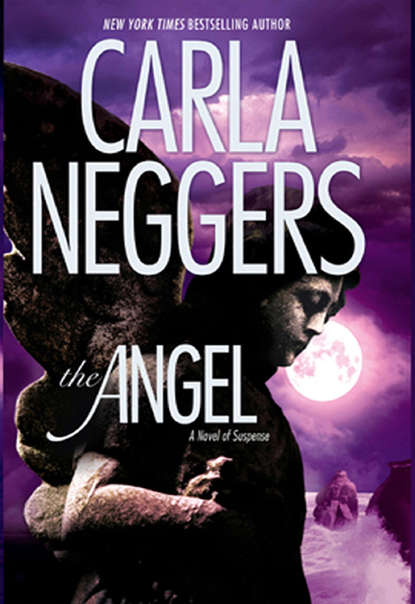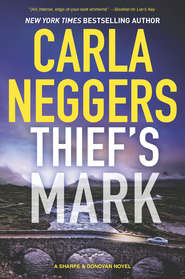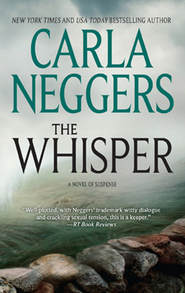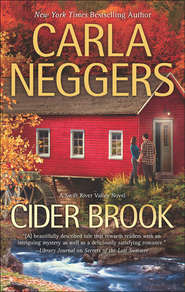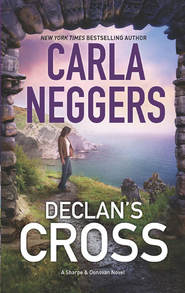По всем вопросам обращайтесь на: info@litportal.ru
(©) 2003-2024.
✖
The Angel
Автор
Год написания книги
2019
Настройки чтения
Размер шрифта
Высота строк
Поля
The students didn’t respond.
“You didn’t see him before you noticed him in the pond?” Bob asked.
They shook their heads. They’d answered the same question before, maybe twice already. Abigail knew she’d asked it.
Bob gave them a thoughtful look. “How do you like BU?”
The skinny student didn’t hide his surprise—and maybe a touch of annoyance—at the personal question as well as his friend did. “What?”
“My daughter goes there. Music major.”
“We don’t know any music majors,” the meaty kid said quickly.
Abigail bit her tongue at the exchange, but Bob didn’t mention Fiona by name and finally told the students to go on back to their dorms. This time, they didn’t hesitate.
Bob turned to her. His red hair had frizzed up in the humidity and rain, and his freckles stood out on his pale skin. “You look like you want to smack me.”
“It’s a thought.”
He obviously didn’t care. She’d never met anyone with a thicker hide. She owned a triple-decker in Jamaica Plain, a Boston neighborhood, with him and a third detective, an arrangement that for the most part worked out well, but tonight, for the first time, she could see the potential for complications.
“Press is all over this one,” Bob said, nodding to a camera crew. “Some rich guy from Cambridge tripping on his shoelaces and drowning in the Public Garden swan pond.”
“We don’t know he’s rich, and, actually, it’s called the lagoon.”
“Lagoon? Lagoon reminds me of Gilligan’s Island. Why don’t they just call it a pond?”
“Maybe it’s a Victorian thing.” Abigail ran both her hands through her short, dark curls, noticing wet spots where water had dropped onto her head from leaves of the nearby shade trees. “And Mr. Sarakis was wearing loafers. No laces to trip over.”
“Figure of speech.”
Abigail said nothing.
“This is a straightforward death investigation, Abigail. Guy running in the rain slips or trips and goes flying, hits his head on the concrete, falls into the drink and drowns. A freak accident.”
“A good detective doesn’t let assumptions drive conclusions,” she said, adding with just a touch of sarcasm, “I wonder who gave me that advice when I decided to become a detective?”
“Don’t give me a hard time. I’m not in the mood.”
She didn’t blame him for wanting Victor Sarakis’s death to be an accident, considering his niece was the one who’d called 911.
Abigail kept her mouth shut. Normally she would appreciate Bob’s insight, his questions. He’d been in Boston law enforcement through some of its most difficult crime years. He wasn’t bitter and burnt-out so much as cynical. He’d seen it all, he liked to say, and not much of it had been good. But she didn’t want him around right now. It wasn’t just because of Keira’s involvement with the case, either.
“Never mind my bad mood,” he said. “You’ve been prickly for days.”
“So?”
He didn’t answer, and she felt him studying her in the same way he had when they’d first met eight years ago. He hadn’t believed she’d make a good police officer, much less a good homicide detective. She’d won him over slowly, despite what he considered a lot of baggage. Her father was the FBI director, a liability from Bob O’Reilly’s perspective because it brought attention to her. By itself, it was enough for him to rule her out as police officer material. But that wasn’t all. She’d quit law school after her husband was murdered four days into their Maine honeymoon, a case that had remained unresolved for seven years, until a break last summer.
Finally, she knew how Chris—her first love—had died, and who had killed him. For seven years, it was all she’d wanted in life. Answers. Justice. The lifting of the burden of not knowing what had happened that awful day.
But the break in the case had changed her life in a way she hadn’t anticipated. During her hunt for her husband’s killer last summer, she’d also opened herself up to falling in love again.
She could feel Bob’s eyes on her and brought herself back to the present. “There’s no evidence of foul play,” he said.
Abigail chose her words carefully. “So far, no, there isn’t.”
“He had his wallet in his back pocket.”
Indeed, the wallet had made identifying Victor Sarakis easy because it came complete with his driver’s license, ATM card, credit cards, insurance cards, bookstore frequent-buyer card and seventy-seven dollars in cash. No loose change, unless it had fallen out of his pants into the water or grass. If it had, the crime scene guys would find it.
But Abigail knew Bob had raised the point about the wallet because it played into his desire for Sarakis’s death to be an accident.
“What do you suppose he was doing out here in the rain?” she asked, knowing Bob wouldn’t like the question but refusing to let him bulldoze her.
“Movie, play, Starbucks. It’s Boston in June. He could have been doing a million different things.”
“He’s from Cambridge.”
“A lot of people from Cambridge cross the river for a night on the town.”
She knew that and wasn’t sure why she’d brought it up, except that Victor Sarakis didn’t strike her as a night-on-the-town sort. He wore expensive, if traditional, clothes—khakis, polo shirt and loafers. No socks. She hadn’t found a receipt from a nearby restaurant or shop or ticket stubs in his pockets. Patrol officers were at his house in Cambridge attempting to notify next of kin, but, so far, no one was home.
“Keira arrived at the party late. I wonder—”
“Don’t even go there.” Bob’s tone had sharpened. “You have no cause to push this thing.”
Abigail wasn’t intimidated. “A dead man. That’s cause enough.”
He tilted his head back slightly in that way she knew so well. It said that he knew she was deliberately pushing his buttons, that he wasn’t saying anything now because he was going to give her a chance to dig a deeper hole for herself.
So she did. “I wonder if Victor Sarakis was on his way to the auction. Maybe he was going to bid on one of Keira’s paintings.”
Bob rocked back on his heels. He and Abigail had worked together a long time, and she knew her comment would set him off. He could be volatile, or he could be patient. The choice depended on what he wanted, what tactic he thought would work to his best advantage. He wasn’t unemotional. He just had his emotions under tight wraps.
As far as Abigail could see, Bob had never known what to make of his niece. At almost thirty, Keira was a successful illustrator and folklorist, but with no roots, no sense of place. She’d been on the move since high school. Bob, on the other hand, had never lived anywhere but Boston.
“I doubt it was the only event on Beacon Hill tonight, but go ahead, Abigail,” he said. “Check the guest list. Knock on every door within ten blocks of here. It’s not like you have anything else to do, right?”
She had a full caseload. Every detective in the department did. But she shrugged. “I’m trying to remember how I heard about the auction. I don’t remember getting an actual invitation. I think it was just an announcement.” She sighed. She didn’t know why she was antagonizing Bob. “Forget it. I’m getting ahead of myself.”
He seemed to soften slightly, but that could be a tactic, too. “It’s the time of year. Summer solstice is getting close. It’s worse than a full moon. Too damn much sun, I swear. Brings out the weirdos.”
Abigail couldn’t resist a smile. “Bob, nobody says weirdos anymore.”
He grinned at her. “I do.”
“What’s with you and the summer solstice?”





